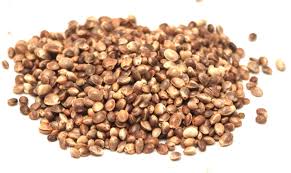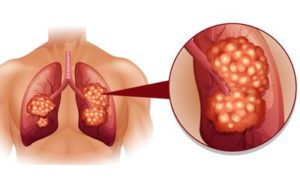- You are here:
- Home »
- Blog »
- integrative therapy »
- Lung Cancer- Surgery, lymph node involvement- How Long?
Lung Cancer- Surgery, lymph node involvement- How Long?

Curcumin induced apoptotic morphologic changes in NCI-H460 cells in a dose-dependent manner…Resveratrol is a potent antioxidant found in grapes that inhibits several types of cancer, including lung cancer…”
Cancer Coach- My Mother was diagnosed with lung cancer (LC). She has 2/3 of her right lung surgically removed. Her Surgeon told her she was cancer-free but said she may still need chemo as they found one cancerous lymph node.
She went to have a Pet Scan and that scan showed spots on her liver which the oncologist believes to be cancer cells that had spread from her lung. However, he cannot be sure as they have not yet biopsied these spots on her liver for a exact diagnoses.
They said that she may have 12 months to live without chemo and possibly a 40 % chance to live 18 months with chemo. Quite naturally she is very distressed about this.
Based on your research, do you think the doctor is right? Should she get a second opinion? What else might she do to improve her odds of survival beyond 12-18 months? are there any other treatments she might try and finally, do you know of anyone who had a similar diagnoses and has survived beyond the 12-18 month range.
Thanks, Alan
Dear Alan,
I am sorry to read of your mother’s cancer diagnosis. Several things-
1) yes, please get a second opinion. Each oncologist, each institution will have different specialties, different areas of expertise. Your insurance should cover the second opinion and you will learn each time you meet with a different oncologist. You and your mom will make better decisions.
2) it is impossible to quote prognosis statistics (12-18 months to live) without an exact diagnosis. Many of your decisions will be based on your mom’s exact diagnosis. The more info you give me, the more specific info I can research and give you. It is unfair for your onc to expect you to agree with his/her recommendations without an exact diagnosis, stage, molecular/genetic testing.
3) Regarding your question “They said that she may have 12 months to live without chemo and possibly a 40 % chance to live 18 months with chemo.” Ask your onc if this statement means that your mom has 60% chance to live LESS than 18 months with chemo. I am not trying to sound annoying, I am simply saying that chemo for stage 4 lung cancer, if this is the stage of your mom, has a downside that oncs don’t mention.
And that downside is that your mom lives LESS than 18 months with poor quality of life.
Your challenge is asking your onc the right questions to reveal the risk/reward equation.
5) in order to answer your question “What else might she do to improve her odds of survival beyond 12-18 months? are there any other treatments she might try?” Yes, there are many other evidence-based therapies to consider.
But a great deal depends on your mother’s age, physical condition, stage/molecular testing, etc. Aggressive chemo can be debilitating to the patient.
There are many evidence-based, non-toxic supplements that slow or stop lung cancer- either taken alone or in conjunction with chemo- consider undergoing less chemo than the standard of care-see below- let’s discuss-
6) Lastly, in addition to possible integrative therapies that I refer to in #5, please consider evidence-based therapies that can integrate or synergize with one or more of the chemotherapy regimens prescribed by your oncologist. Integrative therapies can enhance the efficacy of chemotherapy while it reduces chemo toxicity.
Alan, I will be direct with you. From the standpoint of conventional oncology, your mom’s therapy options are limited. If she is stage 4 lung cancer then her prognosis, as you say, is 12-18 at best. Your decision is not chemo or not, it is the degree of chemo (how much toxicity can your mom withstand) when combined with supplementation. Low doses of chemo combined with supplementation may be a tough-sell to your onc.
If this direction, this integrative therapy interests you we can discuss further. Let me know.
Thanks and hang in there-
David Emerson
- Cancer Survivor
- Cancer Coach
- Director PeopleBeatingCancer
Recommended Reading:
- Integrative Lung Cancer Treatment
- Immunotherapy Increases Response to Chemo in Lung Cancer
- Metformin Improves Lung Cancer Survival by 66%
Curcumin induces apoptosis in human non-small cell lung cancer NCI-H460 cells through ER stress and caspase cascade- and mitochondria-dependent pathways.
“It has been reported that curcumin inhibited various types of cancer cells in vitro and in vivo. However, mechanisms of curcumin-inhibited cell growth and -induced apoptosis in human non-small cell lung cancer cells (NCI-H460) still remain unclear. In this study, NCI-H460 cells were treated with curcumin to determine its anticancer activity. Different concentrations of curcumin were used for different durations in NCI-H460 cells and the subsequent changes in the cell morphology, viability, cell cycle, mRNA and protein expressions were determined. Curcumin induced apoptotic morphologic changes in NCI-H460 cells in a dose-dependent manner…”
Pterostilbene inhibits lung cancer through induction of apoptosis.
“Lung cancer remains the leading cause of cancer mortality in the United States. Resveratrol is a potent antioxidant found in grapes that inhibits several types of cancer, including lung cancer. Herein, we investigated the effects of pterostilbene, an analog of resveratrol found in blueberries, on lung cancer, in vitro. We hypothesized that pterostilbene would inhibit lung cancer cell growth in vitro by a pro-apoptotic mechanism…
Pterostilbene inhibits growth via apoptosis induction in vitro.”


